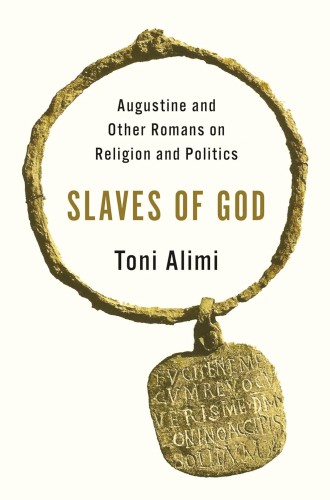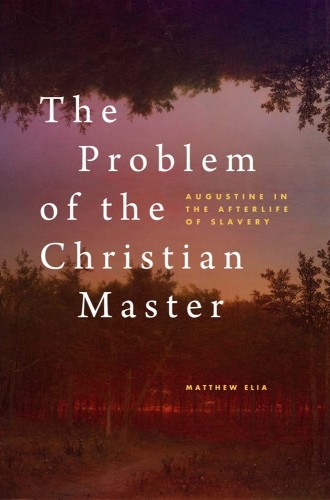Is slavery integral to Augustine’s theology?
Toni Alimi and Matthew Elia each make the case that it is. Their books demand a reckoning.

Slaves of God
Augustine and Other Romans on Religion and Politics

The Problem of the Christian Master
Augustine in the Afterlife of Slavery
Imagine growing up with a remarkable painting as the centerpiece of your home. The artwork seeps into your imagination. You see yourself in it, somehow. Its power and beauty are amplified by a whiff of enchantment since the painting has been handed down for generations. You are now its caretaker. Like grandparents and great-grandparents before you, your family has decorated your living room in relation to its palette. In a way, you’ve built your home around this cherished painting. Then one day you learn the buried tale of its provenance. The only reason your family owns the painting is because it was looted from a Jewish family deported to the camps. You’ve built a home around an artifact of monstrous inhumanity and profound injustice. What do you do with it now?
That was my experience reading two game-changing books on Augustine and slavery. Published within months of each other, Toni Alimi’s Slaves of God and Matthew Elia’s The Problem of the Christian Master are scholarly works that have landed like bombshells in the field of Augustinian studies. But the blast zone should be wider. Given the extent to which Western Christian traditions, both Roman Catholic and Protestant, have built their theological houses around Augustine’s legacy, these books should occasion a reckoning.
Both Alimi and Elia caution that this isn’t just a question of whether Augustine owned slaves (he did not) or endorsed slavery (he did). The issue is the ways and extent to which slavery functions conceptually in Augustine’s theology, ethics, and metaphysics. Alimi adopts philosopher W. V. O. Quine’s notion of a “web of beliefs” to get at this. All of us have an array of commitments and beliefs, and many of them are peripheral and relatively inconsequential. If it turned out we were wrong about David Lynch’s birthday or the merits of Cardi B’s last album, our lives wouldn’t change. But some beliefs are central; we organize our lives around them like a hub. Alimi’s argument is clear: “Augustine’s beliefs about slavery were much closer to the center of his web than has previously been thought.” His book is a careful, patient demonstration of this claim.




